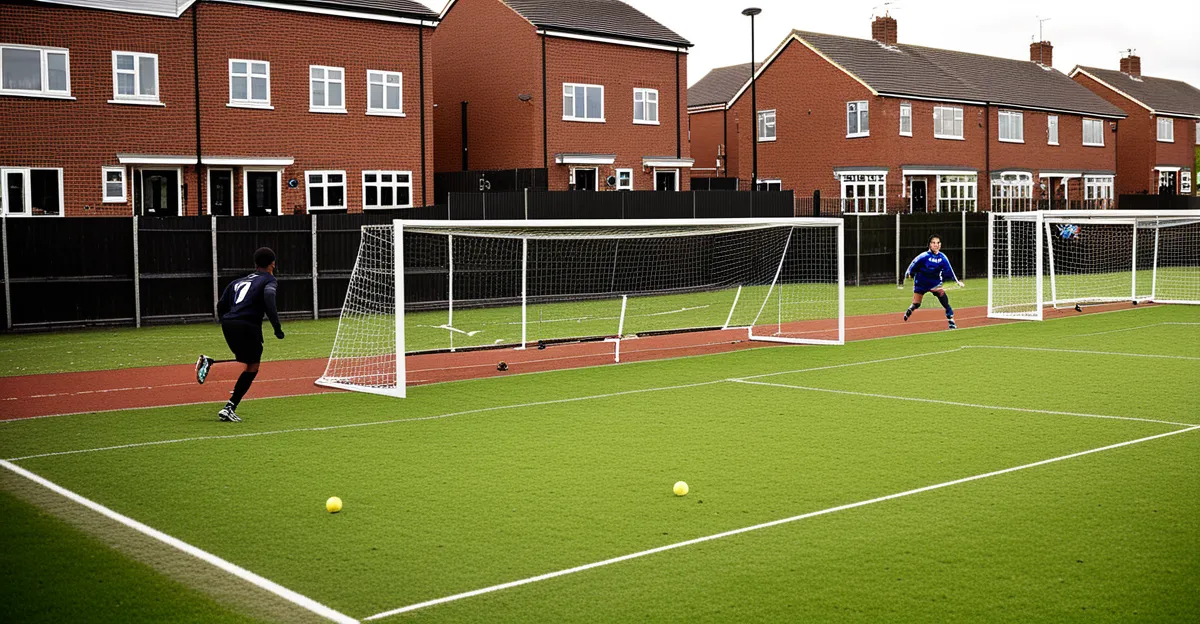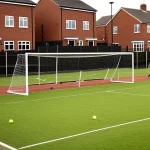Effects of Grassroots Sports Development on UK Communities
Grassroots sports development in the UK encompasses the establishment and support of local sports activities accessible to all age groups and skill levels. It aims to build inclusive environments where people can participate, learn, and compete without barriers. This broad scope ranges from school sports clubs to neighborhood leagues and volunteer-led teams.
The social impact is profound. Grassroots initiatives enhance community ties by encouraging participation across diverse groups, fostering a sense of belonging and mutual support. This inclusion helps to reduce social exclusion and bridges gaps between different cultural or socio-economic backgrounds within UK communities.
Also read : How do UK sports initiatives promote gender equality?
Economically, grassroots sports stimulate local economies through event hosting and increased footfall to venues and businesses. Jobs and volunteer roles created around these activities boost employment opportunities and contribute to local investment. The development of sports infrastructure, such as refurbished pitches or community centres, further strengthens this economic effect.
Health outcomes are equally significant. Participation in grassroots sports raises physical activity levels, combating sedentary lifestyles and associated illnesses. Moreover, these activities positively affect mental well-being by reducing stress and promoting social interaction. Certain grassroots programmes also specifically target health inequalities in deprived areas, improving public health more broadly. This holistic impact underscores grassroots sports as a vital component of thriving UK communities.
Also to read : How Will Recent Changes in UK Sports Regulations Impact Athletes’ Performances?
Social Benefits of Grassroots Sports in Local Communities
Grassroots sports development plays a crucial role in fostering social inclusion within UK communities. By offering accessible sports opportunities, it brings together individuals of various cultural and socio-economic backgrounds, nurturing community cohesion. This inclusive environment helps form bonds and break down social barriers, contributing to more united neighbourhoods.
Youth engagement is another key outcome. Grassroots sports provide structured, positive activities that attract young people, diverting them from anti-social behaviour and potential criminal activity. Participation in local teams and clubs teaches teamwork, discipline, and responsibility, which are vital for personal growth. Studies repeatedly show that involvement in grassroots programmes correlates with crime reduction in participating areas.
Community activities centered on sports also encourage broader social interaction, creating safer and more connected neighbourhoods. Volunteering roles within grassroots sports projects further reinforce this cohesion by empowering residents. Overall, these social benefits extend beyond immediate participation, building resilient, supportive UK communities where individuals feel valued and included.
Effects of Grassroots Sports Development on UK Communities
Grassroots sports development in UK communities involves creating accessible sports opportunities for all ages and abilities. It goes beyond simply playing sports; it builds inclusive spaces where social, economic, and health benefits flourish simultaneously.
The social impact roots deeply in fostering connections across diverse groups, reinforcing community cohesion and reducing social isolation. By encouraging widespread participation, grassroots sports help embed shared values, enhance local pride, and offer constructive outlets for youth engagement.
Economically, grassroots sports stimulate local investment and economic growth by attracting events that increase visitor numbers and support surrounding businesses. They generate job creation and volunteer roles essential for sustaining community sports programmes. Additionally, investing in sports infrastructure such as pitches and community centres amplifies access and long-term economic benefits.
In terms of health outcomes, grassroots sports significantly elevate physical activity levels, directly combating sedentary lifestyles prevalent across UK communities. Participation further promotes mental well-being by easing stress and fostering supportive social networks. Importantly, targeted initiatives work to reduce health inequalities in under-resourced areas, ensuring inclusive health benefits.
Overall, the multi-dimensional effects of grassroots sports development make it a cornerstone for nurturing resilient, vibrant UK communities.
Effects of Grassroots Sports Development on UK Communities
Grassroots sports development in UK communities refers to accessible, community-based sports activities that encourage participation across all ages and abilities. Its scope includes local clubs, schools, and volunteer-led initiatives aiming to create inclusive environments promoting active engagement.
The social impact of grassroots sports development is substantial. By facilitating interaction among diverse groups, it strengthens community bonds and mitigates social exclusion. The immediate result is enhanced social cohesion, while long-term effects include sustained community pride and resilience.
Economically, grassroots sports initiatives contribute to local investment by attracting events and increasing footfall to nearby businesses. This drives economic growth by creating jobs and volunteering roles, vital for maintaining active sports programmes. Moreover, investment in sports infrastructure, such as improved pitches and facilities, supports ongoing development, fostering a sustainable economic cycle.
Regarding health outcomes, grassroots sports increase physical activity levels, crucial in combating sedentary lifestyles. Participation also supports mental well-being by providing social networks that reduce stress. Importantly, targeted programmes reduce health inequalities by focusing resources on deprived communities, ensuring equitable health benefits nationwide.
Overall, grassroots sports development delivers intertwined social, economic, and health benefits essential to thriving UK communities.
Effects of Grassroots Sports Development on UK Communities
Grassroots sports development in the UK refers to locally accessible, community-based sports activities that encompass clubs, volunteer groups, and school programmes. These initiatives focus on inclusive participation across ages and abilities, forming the foundation for healthier and more connected UK communities.
The social impact of grassroots sports development manifests in stronger bonds and a greater sense of belonging among diverse populations. It fosters community cohesion by breaking down barriers and encouraging collaborative engagement. Immediate effects include increased social interaction and youth involvement, while long-term results contribute to resilient, supportive neighbourhoods.
Economically, grassroots sports act as catalysts for local investment and economic growth. Hosting events and maintaining active participation boosts local businesses by attracting visitors and enhancing footfall. Furthermore, grassroots programmes create significant job creation and volunteer opportunities essential for sustaining sports activities. Investment in sports infrastructure, such as improved pitches and community facilities, ensures the longevity of these benefits and encourages further development.
From a health perspective, participation in grassroots sports directly elevates physical activity levels, combating sedentary habits prevalent in many communities. This increase in activity supports improved public health and has measurable positive effects on mental well-being, including stress reduction. Targeted grassroots initiatives also address health inequalities, focusing resources on disadvantaged areas to promote equitable health outcomes across the UK.



